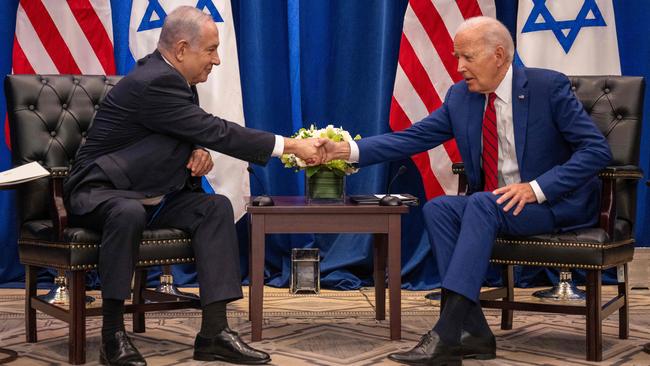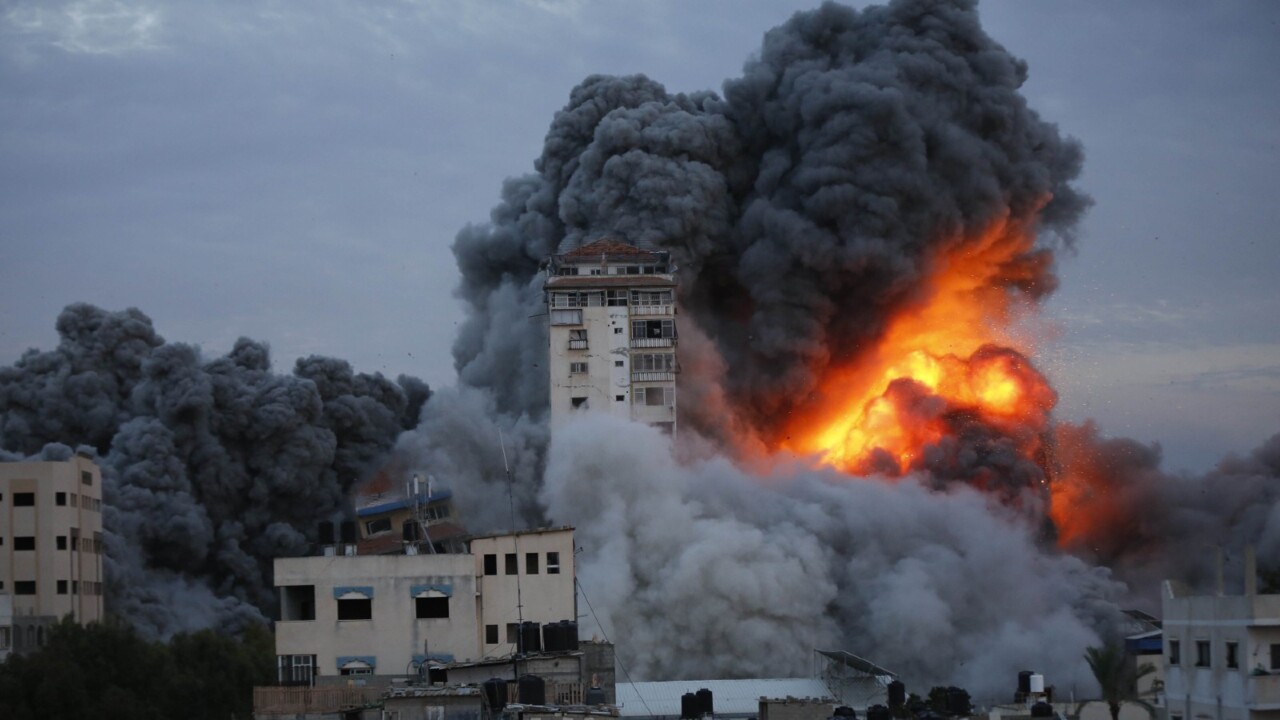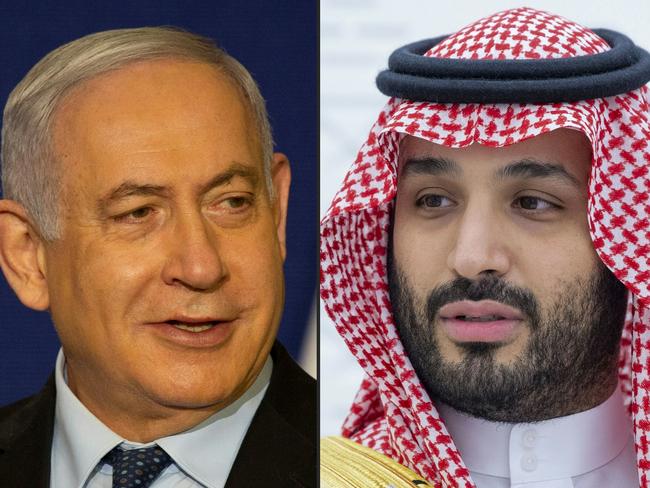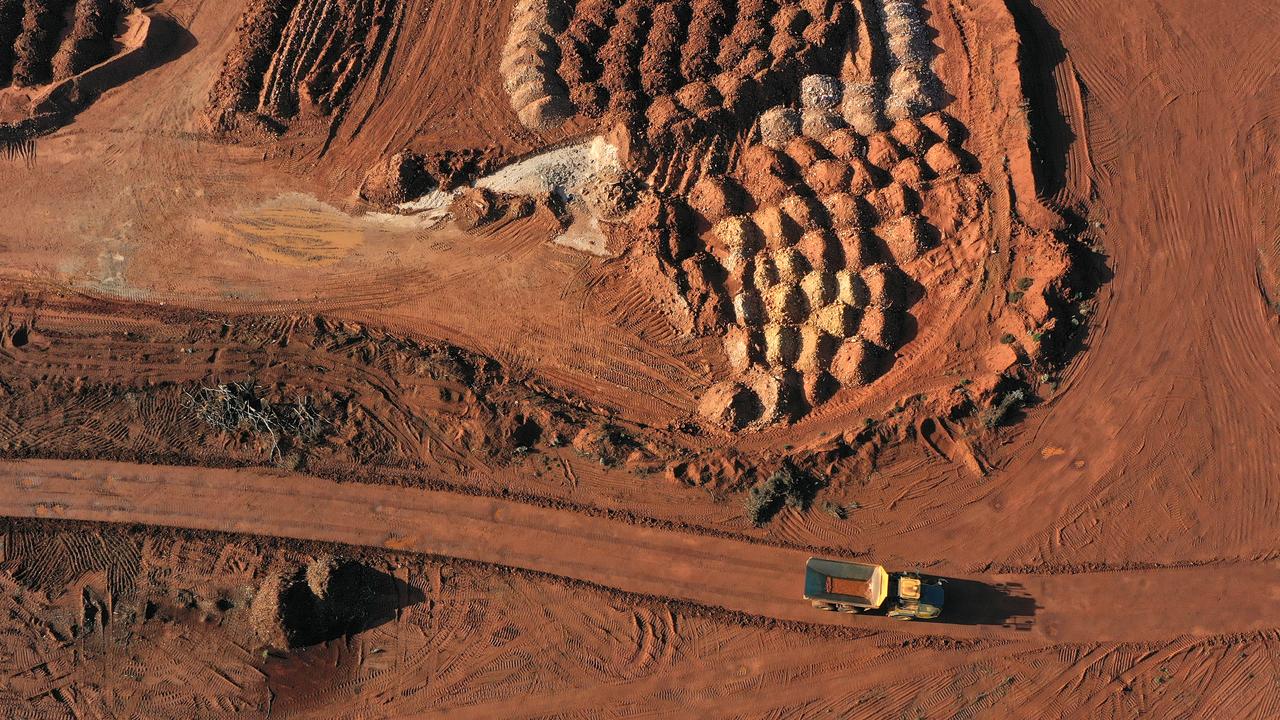
For months now, the Biden White House has been quietly working towards brokering an unprecedented deal to bring about Saudi recognition of Israel in return for defence guarantees from the US.
The normalisation of relations between the two former antagonists would recast Middle Eastern politics in the same way as the 2020 deal with UAE to normalise its relationship with Jerusalem. For Biden, it was to be a signature foreign policy achievement that he could take to American voters in next year’s presidential election.
Yet the sudden war between Hamas and Israel has not only put this deal in doubt, it has delivered a massive foreign policy challenge to Biden in a region where his administration is seen as an underachiever.
Washington has rightly sent an unequivocal message of support for Israel as it is under attack, but it must now urgently consider a tougher approach to Iran, which is the major unseen player in this conflict.

If Iran-backed Hezbollah chooses to exploit Hamas’s invasion into southern Israel by opening a second front against Israel in the north, Biden will confront the gravest Middle East crisis in a generation at a time when US foreign policy is overwhelmingly focused on Ukraine, Russia and China.
The Saudi-Israeli deal was to have been Biden’s glittering prize.
It would send a signal that Israel’s former Arab enemies were willing to do business with Jerusalem without the precondition that it allow the creation of a Palestinian state.
This Saudi deal is now in grave doubt given the appalling death toll of Hamas’s sudden assault on Israel and the certainty of massive casualties ahead in Gaza as Israel responds to the attacks.
Saudi Arabia’s initial response to the attacks instinctively sided with the Palestinians, saying the kingdom had warned repeatedly “of the dangers of the explosion of the situation as a result of the continued occupation, the deprivation of the Palestinian people and their legitimate rights and the repetition of systemic provocations against its sanctities.”
The kingdom also called on countries to “activate a credible peace process that leads to the two-state solution” – a pipe dream right now, given what has unfolded in Israel and Gaza.
In negotiations with the US and Israel, Saudi Arabia has repeatedly demanded that Israel provide more concessions to the Palestinians as a part of the deal.
Crown Prince Mohammed bin Salman, the de facto ruler of Saudi Arabia, in September said “for us, the Palestinian issue is very important. We need to solve that part” in any final deal on normalisation.

A certainty of this new war is that Israel will retaliate overwhelmingly against militants in Gaza, given the size and scale of the attacks on Israel and Israelis by Hamas.
This will inevitably cause massive loss of civilian life in the tiny, crowded enclave where it is impossible to surgically target only Hamas militants.
This development will only fuel public resistance to the proposed deal in Saudi Arabia and perhaps even in Israel.
Polls show a majority of Saudis oppose the normalisation of Israel, a country it has not recognised since 1948.
As part of a deal to recognise Israel, Saudi Arabia wants a formal defence treaty with the US with a commitment to defend the kingdom if it is attacked.
It also wants access to more US weapons systems and US help in constructing a civilian nuclear program.
For Biden, the Saudi deal would answer criticism that his administration has been an underachiever in the Middle East, having focused its foreign policy attention on Ukraine, Russia and China. Under his presidency, there has been almost zero progress towards a two-state solution, although the Palestinian Authority and Benjamin Netanyahu have shown little interest in advancing the cause.
The White House also appears to have given up its attempts to restore the Iran nuclear deal, known as the Joint Comprehensive Plan of Action, as promised during the last election. The failure of the pact is widely seen as a misreading of Iran by the administration, which assumed it could hold sensible negotiations with Tehran over the issue.
Saudi Arabia would be the fourth country after Egypt in 1979, Jordan in 1994 and UAE in 2020 to formally normalise its relationship with Israel. Many Palestinians are opposed to such a deal, believing it gives Israel less reason to focus on a two-state solution in the West Bank.







One of the most dismal global outcomes flowing from the war between Hamas and Israel is the likely scuttling of Joe Biden’s historic plan for Saudi Arabia to normalise ties with Israel.